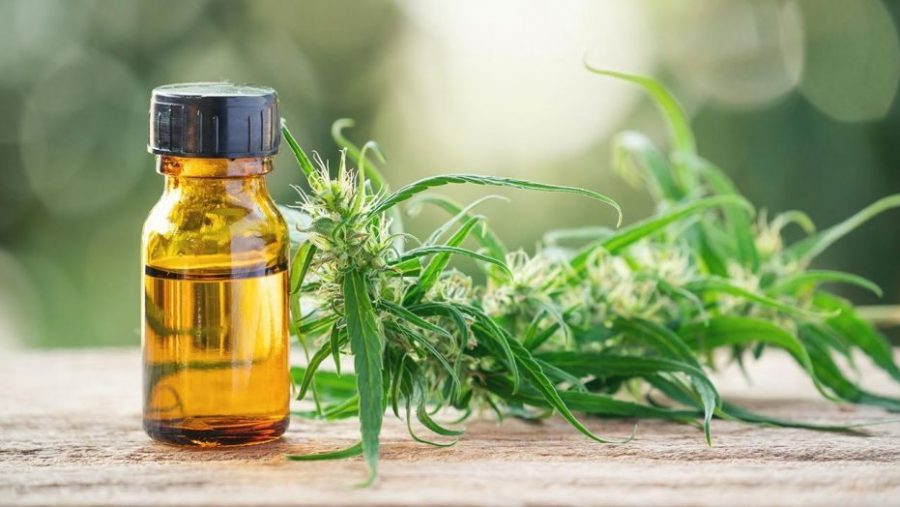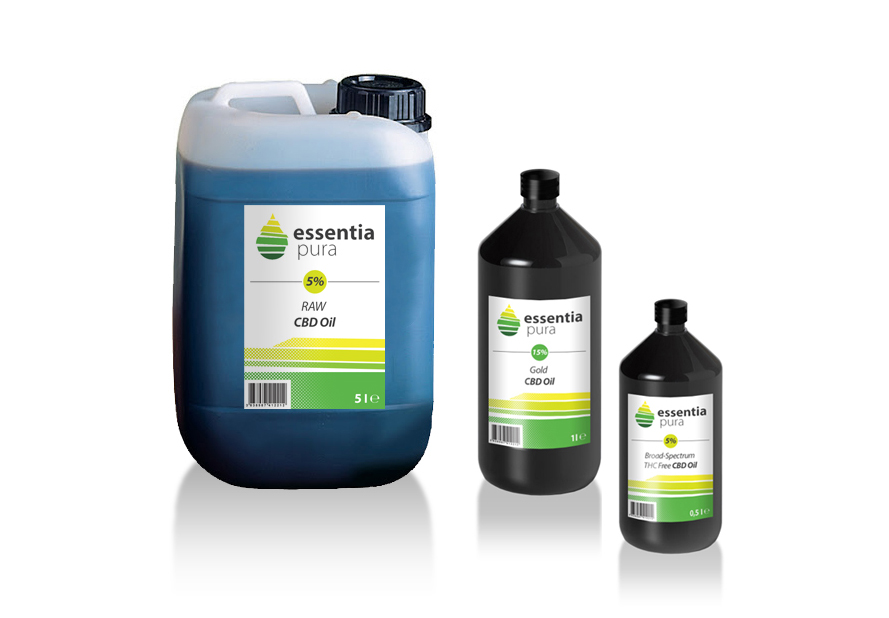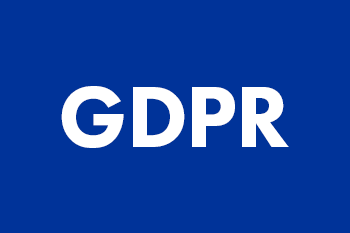Is CBD Legal in Germany?
Germany is Europe’s by far strongest and largest national economy. As of relatively recently, the country also has joined the CBD merry-go-round.

In this article, we are going to explore what you need to know about CBD in Germany. We will cover if CBD is legal in Germany and where can you buy CBD products in Germany. Another important question is how to start a legal CBD business in Germany without running afoul of the law. Last but not least, we take a quick look at the legal situation regarding CBD in the rest of Europe.
The Legality of CBD in Germany
Let’s cut right to the chase: Yes, CBD has become legal in Germany as of relatively recently. On March 3, 2017, an amendment to Germany’s narcotics law came into effect. It paved the way for CBD to become legal.
Thanks to that amendment, CBD can be traded legally traded in pure forms, such as CBD isolate or extract. Or it can be an ingredient in manufactured products like CBD oil or CBD vaping liquid. According to the Federal Institute for Drugs and Medical Devices (BfArM), CBD products can be traded “for commercial and scientific purposes”. And in this context, it really doesn’t matter whether they are intended for medical or recreational use.
However, there is an important point regarding hemp (lat. Cannabis sativa), the raw material used in the manufacture of CBD products.
It must have been grown from certified seeds in countries of the European Union (EU). As a logical consequence of that provision, CBD must only be extracted from such legally cultivated hemp plants.
Legal Restrictions for CBD in Germany
CBD’s legality in Germany certainly is great news for consumers eyeing to use CBD for one reason or another. But it likewise is fantastic for people who are thinking of starting a business with CBD in Germany. Yet it’s not a free-for-all bonanza. There still are some restrictions that all CBD products must adhere to.
Hemp is no longer classified as a “hard” narcotic in Germany. But only hemp plants industrially grown within the EU are permitted to be used for extracting CBD. The regulation is to ensure that CBD products are of the highest quality.
Caps on THC Content
A CBD product legally traded in Germany also must not contain more than 0.2% of THC (tetrahydrocannabinol). If the concentration is higher, the CBD product in question loses its legal status and again is subject to tight control under the narcotics law. That 0.2% THC threshold rule is also enforced in almost all other EU member states. There are only very few exceptions.
Obtaining Legal CBD Products in Germany
Consumers in Germany will have no problem finding physical stores selling ready-made CBD products such as CBD oil or CBD vaping liquid. But when buying, it is a good idea to make sure that the merchandise has been produced in the EU. This will practically guarantee the product to be of a very standard and that it’s fully compliant with the law. Interested buyers also can conduct a simple Google search to source dozens of online stores that offer a wide range of CBD products.
It is not against the law to order a product from outside the EU. But for the sake of quality and safety, it is best to stick with an EU-based supplier.
Essentia Pura: A Great Choice
An excellent choice as a supplier of top-quality CBD products is Essentia Pura, a company located in Slovenia. The firm’s extensive CBD portfolio is uncompromisingly EU-compliant. Furthermore, the hemp plants used by Essentia Pura to extract CBD are all coming from commercial farms under stringent EU supervision.

Besides ready-to-use CBD products such as oil or vaping liquid), Essentia Pura also offers CBD isolate, CBD crystals, CBD extract, and CBD paste. All of them are available in the highest purity achievable with current technologies.
Private individuals can use them to mix their own liquids and oils at home. But of course, they also are coveted by businesses as base ingredients for their own CBD product brands.
Starting a CBD Business in Germany
Registering a CBD business is very straight forward in Germany. It merely involves filing an application with the local chamber of commerce to formally establish a company.
But entrepreneurs must of course decide whether they want to run their new company as a home-based business or an actual commercial store. This choice is primarily dependent on the investment amount they want to seed.
Home Business or Regular Store?
A physical store necessitates substantial investment. After all, commercial space has to be rented, furnished and stocked. Then there are staff salaries to be paid. There also are recurring utility expenses, as well as a slew of taxes.
Many aspiring CBD business owners, therefore, choose to establish a home-based business instead.
That way they can sell their CBD products through an online store. And running a commercial website is considerable less cost-intensive than operating a physical commercial location.
Sourcing a CBD Supplier in Germany
If you want to create your own CBD brand or intend to sell white label (unbranded) merchandise, you are going to need a reliable source. There are lots of companies on the Net that offer all types of CBD products. But it really pays out to stick to a trustworthy, reputable supplier, such as Essentia Pura, one of Europe’s leading manufacturers of CBD products.
As the company operates under EU law, customers always can rest assured that Essentia Pura’s entire CBD portfolio is law-compliant.
CBD Products in Bulk and Wholesale Quantities
It is possible to order white label products from Essentia Pura in small quantities. But the company of course also carries out bulk and wholesale orders.

And when it comes to creating a bespoke brand, Essentia Pura provides a comprehensive range of support services.
These include manufacturing CBD products to customer specifications.
Essential Pura’s CBD experts are always ready to discuss all your requirements. It’s as simple as contacting us.
Shipping to Other EU Countries
Germany may be a sizable market, harbouring an ever-increasing number of CBD users. Some CBD entrepreneurs may just be content with that. But while a CBD business is easy to conduct in Germany, a fledgling company may eventually want to expand to other EU countries, too. The EU is often criticized for its many shortcomings and heavy-handed bureaucracy. But one positive thing is that the commercial laws among the various member countries are generally quite similar. This also applies to CBD products. For instance, the THC limit of 0.2% is uniformly enforced in almost all EU member states.
Exceptions to the Rule of Thumb
But as always, there are a handful of exceptions. Austria and Czechia (Czech Republic) have legislated a threshold of 0.3% THC, for example. Meanwhile, Italy has set a very generous 0.6% THC content limit. But on the other hand, Ireland, Finland, and Norway do not yet allow any THC in CBD products at all. That means 0%, just to be clear. In Norway again, CBD products are exclusively available on medical prescription at the moment. The same goes for Malta. Furthermore, Belgium and Slovakia have not yet legalized CBD. However, they are expected to do so in the near future. And although not actually a member of the EU, Switzerland enforces a THC content of 0.1%.
Keeping Abreast of Rules and Regulations
It is tremendously important to keep these country-specific rules in mind if you intend to conduct your CBD business not only in Germany but also elsewhere in the EU.

After all, you want to avoid shipping illegal products to your customers.
If you are in doubt, you can always seek advice from one of Essentia Pura’s knowledgeable CBD experts.
They will be happy to update you on relevant regulations.
The company’s multilingual experts also will keenly answer all your questions regarding Essentia Pura’s comprehensive product range and the legality of CBD in Germany.
